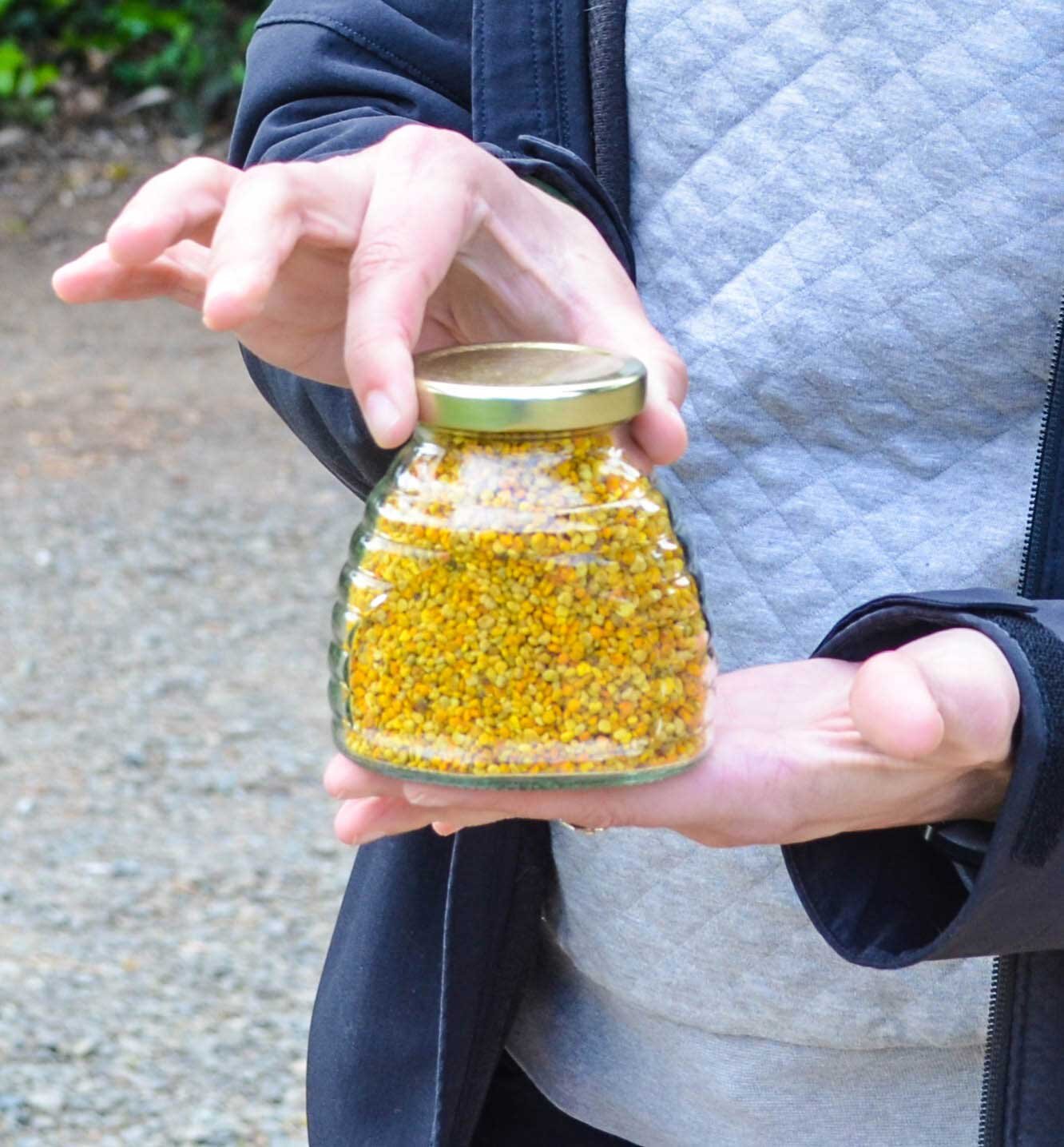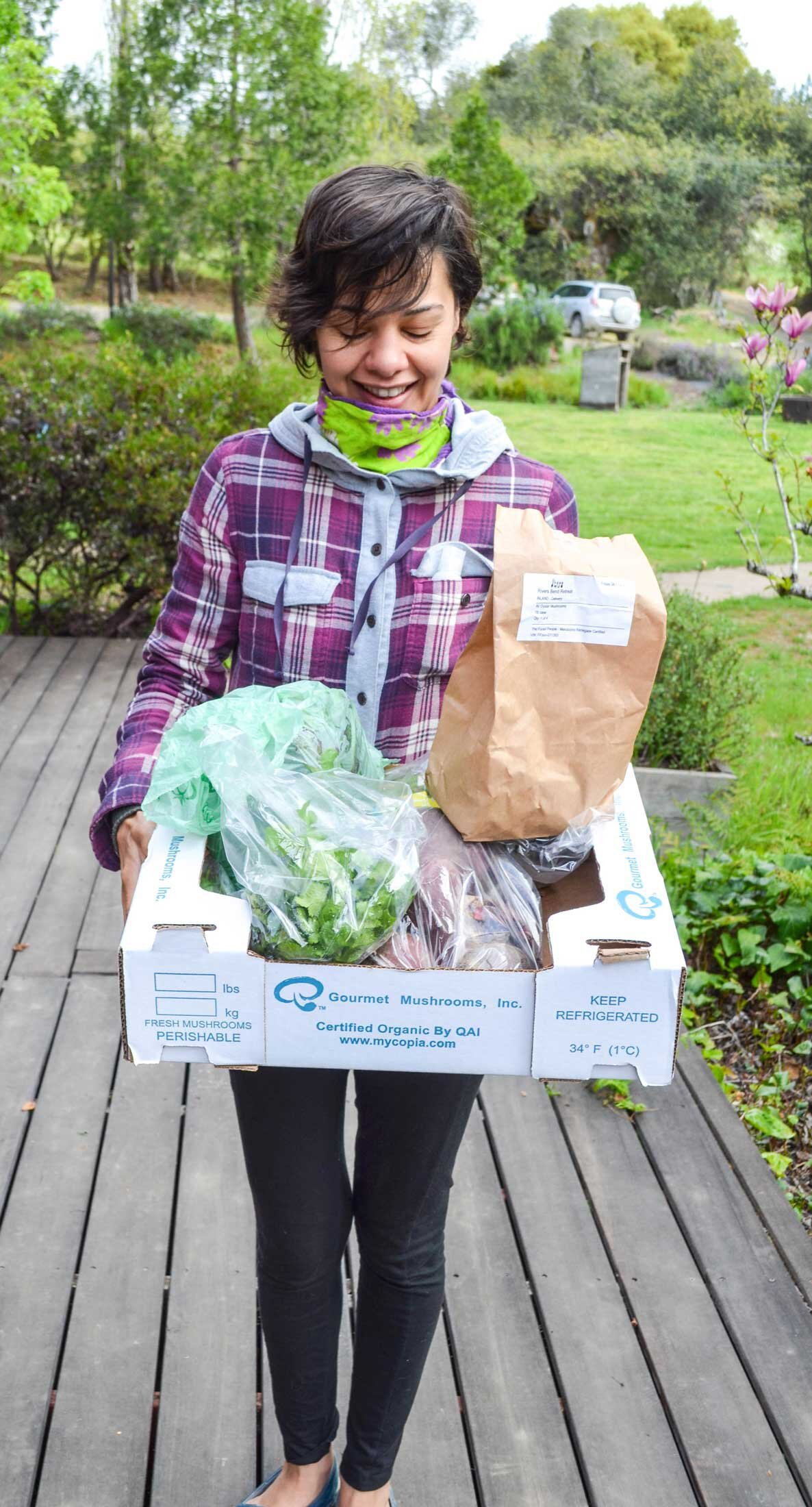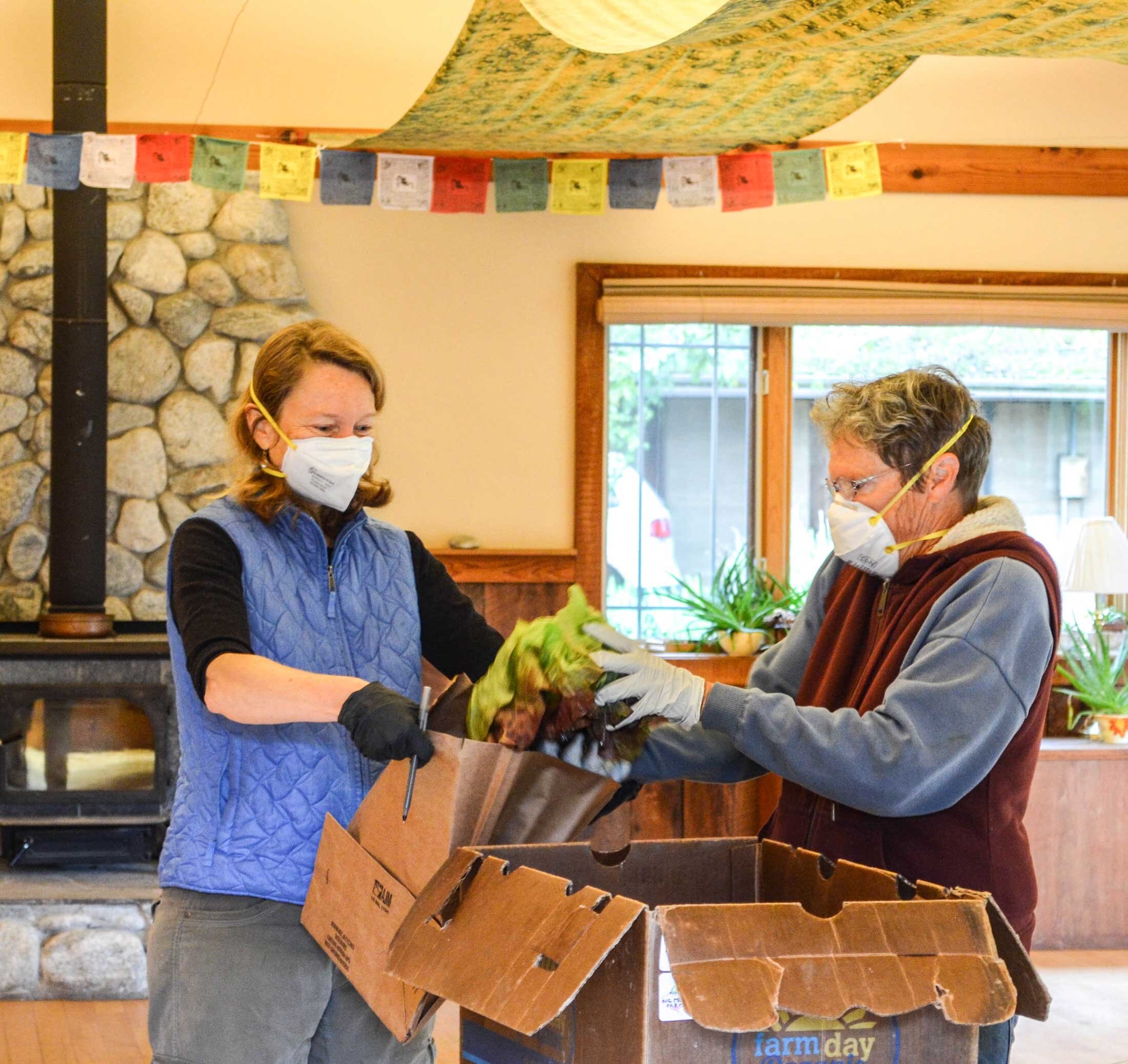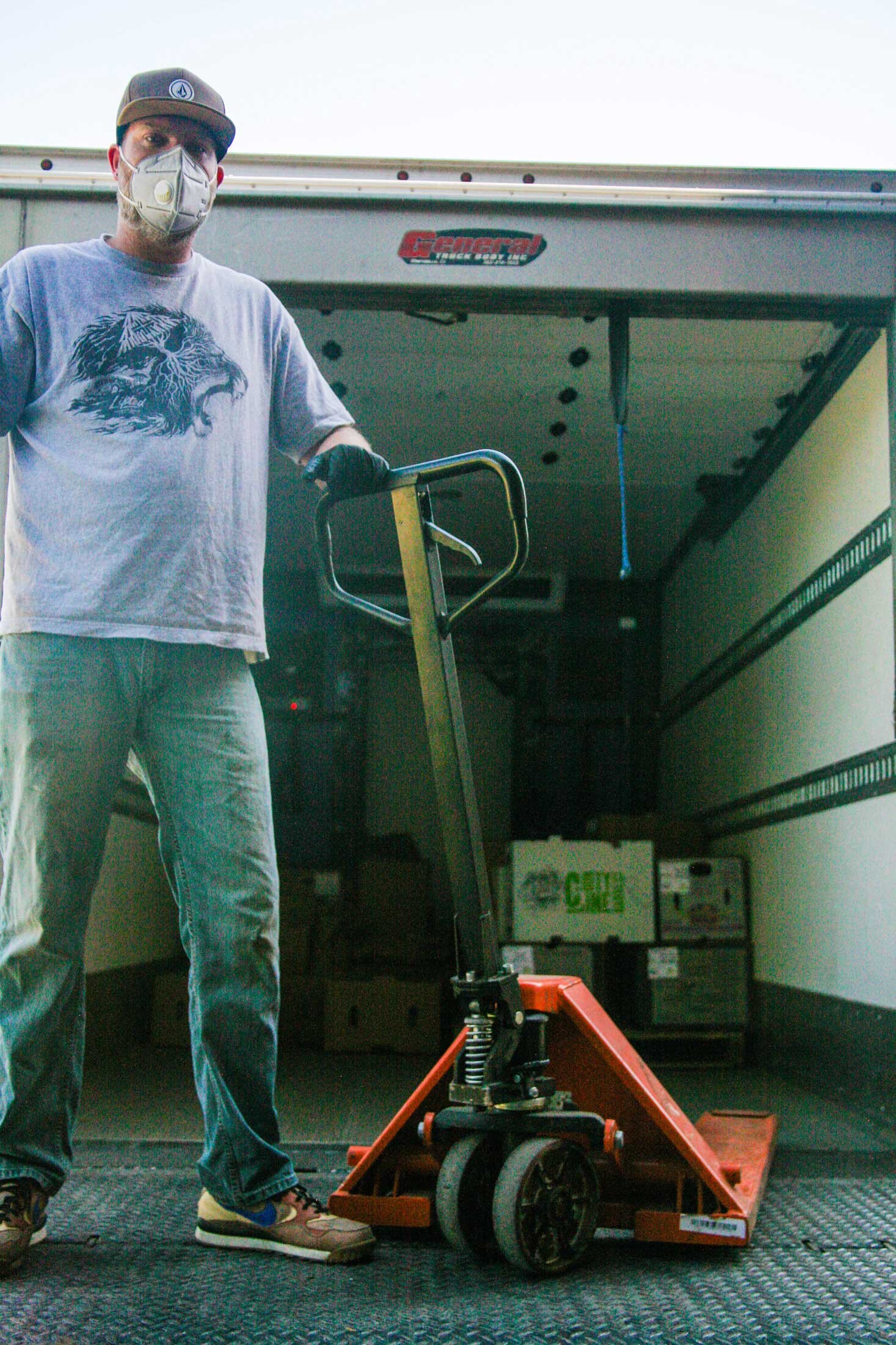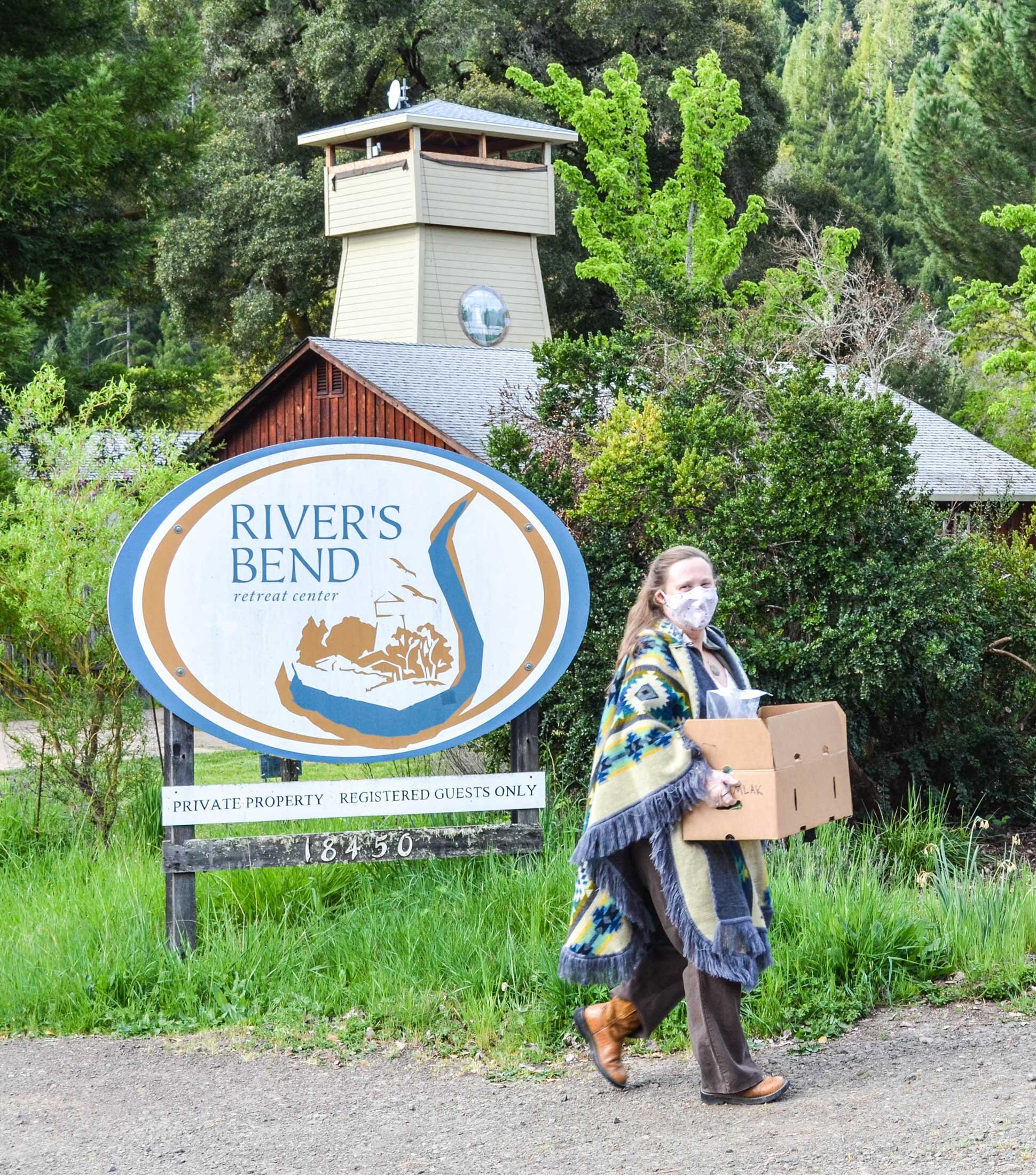The MendoLake Food Hub
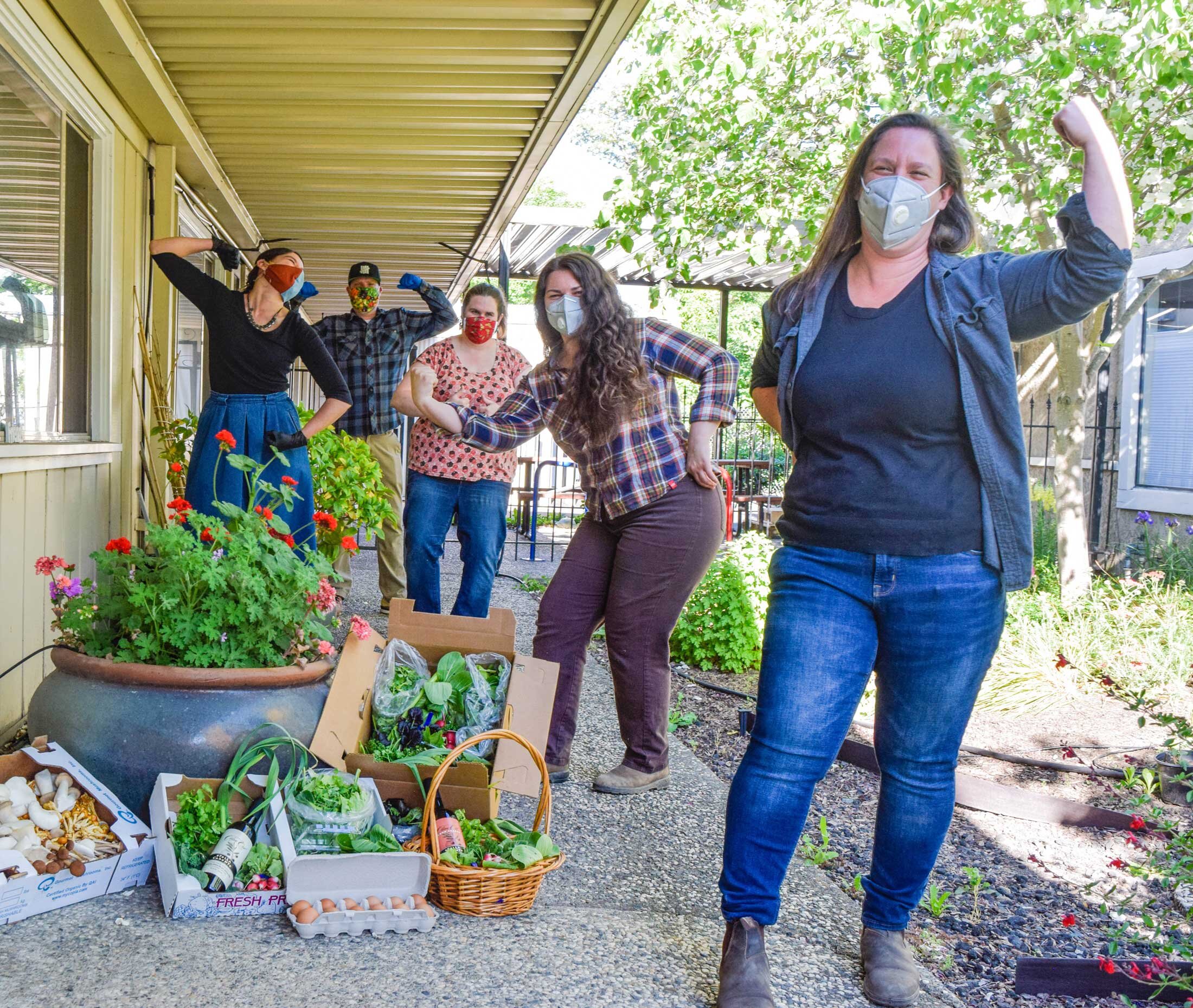
Connecting Farmers and Eaters During Shelter-in-Place
by Torrey Douglass
“I realized early on that this was going to be intense,” commented Caroline Radice, director of MendoLake Food Hub. Her sister lives and works as a product manager for a healthcare analytics company in the Bay Area, so while most of us still thought of COVID-19 as an illness bedeviling China, Italy, and a handful of cruise ships, she saw it as an oncoming crisis that would land on our doorstep eventually—and wreak an unprecedented amount of havoc when it did.
Caroline is at the helm of the MendoLake Food Hub, an organization created in 2015, under the auspices of North Coast Opportunities, to facilitate food orders and deliveries between farmers and wholesale customers. Their customers buy in bulk and include restaurants, schools, and grocery stores. It was mid-March and the end of her work week when it became clear that Mendocino County would soon implement its own shelter-in-place order, effectively shuttering local restaurants and, by extension, a large percentage of Food Hub orders. The MendoLake Food Hub operates on a tight budget in normal times, and past experiences with wildfires proved that it’s difficult for the organization to bounce back after a temporary closure. Caroline began the weekend in low spirits.
Yet by the end of that weekend, Caroline’s perspective had shifted. Grocery shelves were empty, and the demand for staple goods like grains, beans, and rice were high. Headlines were warning of fresh fruit and vegetable shortages down the road as reduced movement of migrant farmworkers impacted supply. Even in rosy times, farmers are spread thin, with little time to market and deliver the produce they grow. The Food Hub was uniquely suited to rise to the challenge of the moment.
Their solution was to quickly shift to a different business model, a daunting task made a little easier by the fact that, in its early days, the Food Hub had experimented with bulk food sales to buyers clubs. Each club consisted of 6-10 people whose collective order had to exceed a minimum dollar amount, giving farmers the ease of selling in bulk and the Food Hub the order size needed to sustain itself, while providing private citizens with nutrient-rich, beautifully produced local food.
That initial project didn’t last, though. The leadership decided to focus exclusively on wholesale customers since the extra complexities of selling directly to the public added unnecessary strain on the nascent organization’s staff and systems. But the bones of the pilot program were still in place, as was the understanding of what it would take to implement it on a larger scale, giving the Food Hub a head start in reworking operations to serve the public when the COVID-19 crisis hit.
Even with this head start, the metamorphosis still required many hours of staff meetings and lots of overtime to discuss options, reach consensus, hammer out details, and finally apply the required changes to existing systems. “It’s been a wild crazy ride,” reflects Project Coordinator Kelly Hansen, adding that they persevered because the team felt “a duty to bring food to our community.” The following week and weekend went by in a blur, with Kelly publicizing the new setup just 72 hours before the online store opened to the public. The hard work paid off—the first week’s sales exceeded expectations and have increased every week since then, with business coming in at three to four times the normal levels.
This is an impressive feat for an organization with a tiny staff, all of them part-time. “We went from 30 orders placed once a week to 80 orders placed two times a week,” salesperson and driver Rachel Laase shared as she was dropping off a small mountain of boxes at River’s Bend in Philo. It was just one of the 38 deliveries she was making that day. “People are amazed. They go to the store and can’t find flour, only to realize it’s grown right here in our county and they can get it from us.”
It helps that the Food Hub has partnered with two other regional food hubs: Capay Farm Shop to the east and FEED Sonoma to the south. This gives Mendocino County farmers access to additional customers who live in those areas, and provides Food Hub customers with a wider selection of products. Local food efforts typically bring to mind farm-fresh produce, and the Food Hub has that in abundance, but its online portal also sells grains, bread, olive oil, walnuts, and mushrooms from Mendocino and Lake farms, rice from growers in Capay Valley, and beans, eggs, honey, and cornmeal from those in Sonoma. Customers can even get a box of mixed items from different farms.
As food handlers, the Food Hub staff were already trained to observe the health and safety regulations required by state and local agencies, so the COVID-19 measures simply added to practices already in place. There are now handwashing stations and sanitizer at each of the refrigerated storage nodes, located throughout the county, where farmers drop off their goods. Drivers wear masks and gloves, and trucks are disinfected after each trip. Ukiah and Willits residents can receive home delivery, and for high-risk folks who don’t want to be out in public, the safety and convenience of “no contact” order deliveries is a welcome solution.
Among those customers is a senior with a pacemaker living in Willits, who found shopping in public so stressful that her pacemaker began acting up. Also grateful for the delivery service are those who are immuno-compromised, pregnant women, and a retired farmer and cancer survivor in Lake County, who says the Food Hub deliveries have been “a lifesaver.” Buyers clubs as far away as the south coast are placing online orders, while some of the older customers prefer to call in, ask what’s available, and order over the phone.
Delivery arrangements have to be individually discussed for people living outside of Ukiah and Willits areas. Due to the increased distance, the order minimums are higher, requiring customers to self-organize into buyers clubs. Purchasing fresh food in bulk means organizing a group of six to ten people, coordinating their requests into a single order, receiving the order, and splitting it up for the members. “The first week took almost 20 hours,” says Laurie Adams, owner of River’s Bend and organizer of one of the first buyers clubs to use the Food Hub. “We continue to work on making it more efficient, and everyone is excited to have access to all this beautiful local food, but it does take time and flexibility.”
These unprecedented conditions have made a lot of people rethink what systems are in place, who they benefit (and don’t), and how they can be reworked to generate better results. The food system is under particular scrutiny since our lives literally depend on it. “By supporting local economy and farmers, we are creating the future we want to see on the other side of this thing,” observes Kelly Hansen. “Local farms and restaurants—those things will not continue if we don’t support them.” With so much change in such a short time, everyone in the food supply chain is experiencing a lot of uncertainty about what lies ahead. But with the Food Hub working hard to bring delicious and nutrient-dense locally produced food to our doorsteps, Mendocino County residents have an opportunity to strengthen our local food system, build community resilience, and eat well as together we face whatever the future brings.
Main photo caption: Ana Victoria, Marc Schwass, Kelly, Rachel, and Caroline keep the Food Hub humming.
Team photo and delivery truck photo by Gabriella Cobb. All other photos by Torrey Douglass.
Torrey Douglass is a web and graphic designer living in Boonville with her husband, two children, and a constantly revolving population of pets and farm animals.

